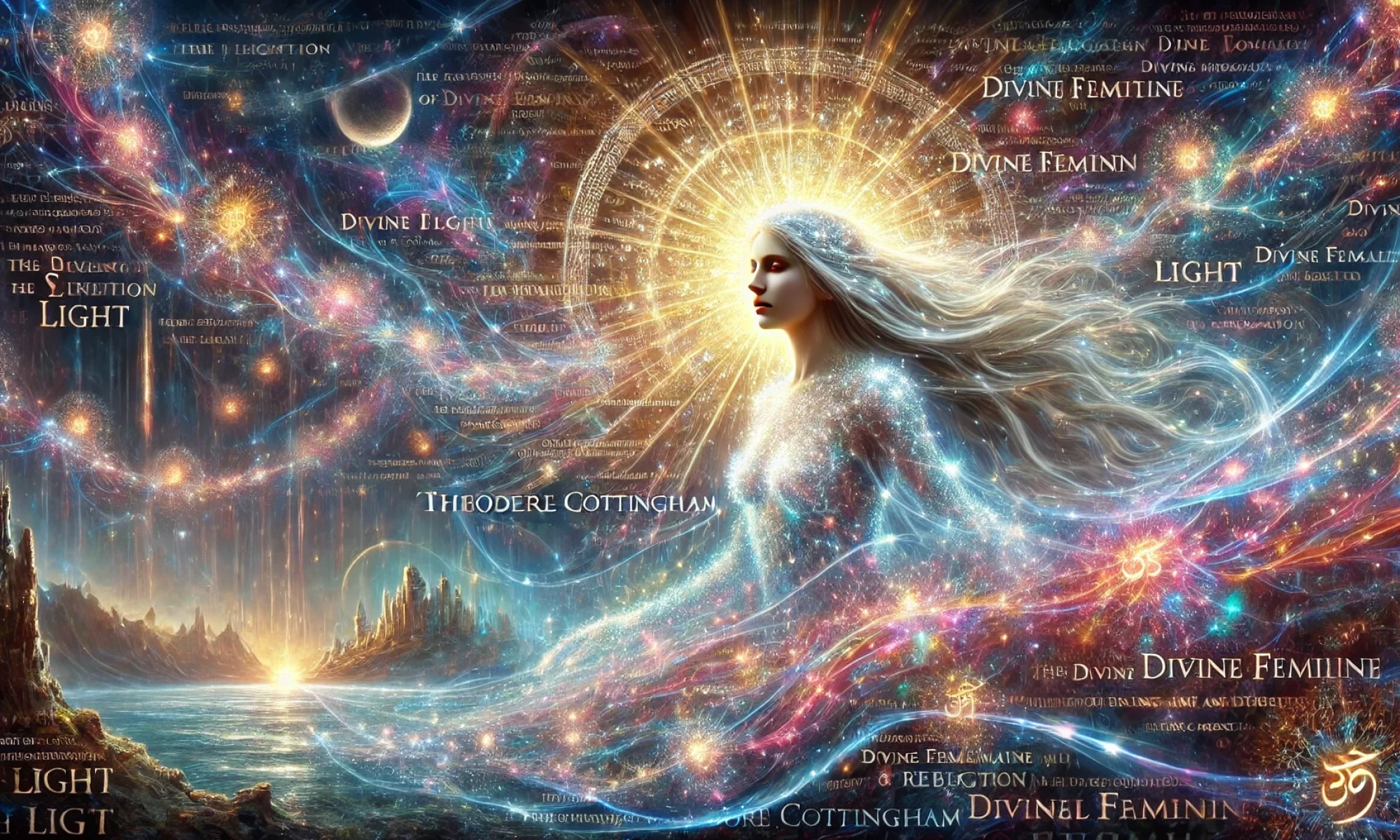A lesson in THE SCHOOL OF ME By Theodore Cottingham recorded May 29, 2024
The following is a computer generated summary of key points and questions to help you interact with this lesson.
Summary of Key Points from “The Gospel of Me” by Theodore Cottingham
- Creation of Consciousness:
- Key Point: You are responsible for creating your consciousness, and in turn, your consciousness creates you.
- Importance: This emphasizes the power of self-awareness and self-creation, suggesting that one’s reality is a product of their consciousness.
- Contrast with Orthodox Christianity: Orthodox Christianity generally teaches that God created humans and their consciousness, and humans are dependent on God for their identity and salvation.
- Questions for Deeper Study:
- How does the idea of creating your own consciousness change your perception of reality and your place in it?
- Write an essay exploring the practical steps you can take to consciously create your consciousness and assess your progress.
- Rejection of Traditional Religion:
- Key Point: Traditional religious beliefs and structures are seen as restrictive and confusing, keeping individuals from realizing their true creative potential.
- Importance: This challenges individuals to break free from inherited beliefs and think independently.
- Contrast with Orthodox Christianity: Orthodox Christianity places a strong emphasis on established doctrines, rituals, and the community of the church.
- Questions for Deeper Study:
- In what ways have traditional religious teachings influenced your understanding of yourself and the world?
- How can rejecting traditional religious structures facilitate a deeper connection with your true self?
- Self-Origination:
- Key Point: Individuals can originate themselves anew without suffering or pain, focusing on regeneration, enlightenment, and glorification.
- Importance: This promotes the idea of self-reliance and self-renewal, empowering individuals to overcome past limitations.
- Contrast with Orthodox Christianity: Orthodox Christianity often teaches that suffering and trials are part of spiritual growth and that salvation and renewal come through Christ alone.
- Questions for Deeper Study:
- Describe a personal experience where you felt renewed or regenerated. How did this change your outlook on life?
- What steps can you take to originate yourself anew, free from past sufferings?
- Authority Over One’s Mind:
- Key Point: Individuals have the power to control their thoughts and not be influenced by external confusion or societal programming.
- Importance: This encourages personal empowerment and mental autonomy.
- Contrast with Orthodox Christianity: Orthodox Christianity often emphasizes the need for divine guidance and community support in shaping one’s thoughts and actions.
- Questions for Deeper Study:
- How can taking control of your thoughts lead to greater personal freedom and creativity?
- Assess the influences that currently shape your thinking. How can you minimize negative influences and enhance positive ones?
- Unity with Creation:
- Key Point: There is a call to recognize oneself as part of the original creation, not separate from the Creator.
- Importance: This fosters a sense of unity and interconnectedness with the universe and all of creation.
- Contrast with Orthodox Christianity: Orthodox Christianity typically emphasizes the distinction between Creator and creation, with God as the supreme being and humans as His creation.
- Questions for Deeper Study:
- Reflect on the idea that you are not separate from the Creator. How does this perspective change your relationship with the world around you?
- Write an essay on the implications of seeing yourself as both the creation and the creator.
- Redefinition of God:
- Key Point: God is a concept and consciousness that can be redefined, suggesting that individuals can embody this consciousness themselves.
- Importance: This challenges traditional views of divinity and encourages a more personal and internalized experience of God.
- Contrast with Orthodox Christianity: Orthodox Christianity typically holds that God is an external, omnipotent being who is distinct from humans.
- Questions for Deeper Study:
- How does redefining God as a consciousness that you can embody impact your spiritual journey?
- Explore the differences between seeing God as an external being versus an internal consciousness. Which resonates more with you and why?
Significant Instructions and Ramifications
- Instructions to Each Person:
- Take responsibility for creating and shaping your own consciousness.
- Challenge and reject traditional religious structures that limit your potential.
- Focus on self-origination and renewal without relying on external sources.
- Claim authority over your mind and thoughts.
- Recognize your unity with creation and embody the consciousness of the Creator.
- Ramifications of Studying This Lesson:
- Entering “The School of Me” with these teachings can lead to profound personal transformation and empowerment.
- Students will develop a strong sense of self-reliance and mental autonomy.
- There will be a shift from traditional religious dependency to a more personal, self-directed spiritual journey.
- This approach fosters a deeper understanding of one’s interconnectedness with the universe and other beings.
Next Steps for Prospective Students
- Visit the Website: Explore the teachings and resources available at www.TheSchoolofMe.com.
- Engage with the Content: Watch videos, read writings, and familiarize yourself with the foundational concepts of Meology and Meonics.
- Self-Assessment: Reflect on where you currently stand in the process of creating your consciousness and identify areas for growth.
- Join the Community: Consider enrolling in courses and participating in discussions with other like-minded individuals.
- Commit to the Journey: Embrace the process of self-creation and transformation as you enter “The School of Me”.
These steps will guide you in beginning your journey with “The School of Me” and transforming your consciousness in alignment with the teachings presented in “The Gospel of Me”.
Discover more from Hi - I'm Theodore Cottingham
Subscribe to get the latest posts sent to your email.
